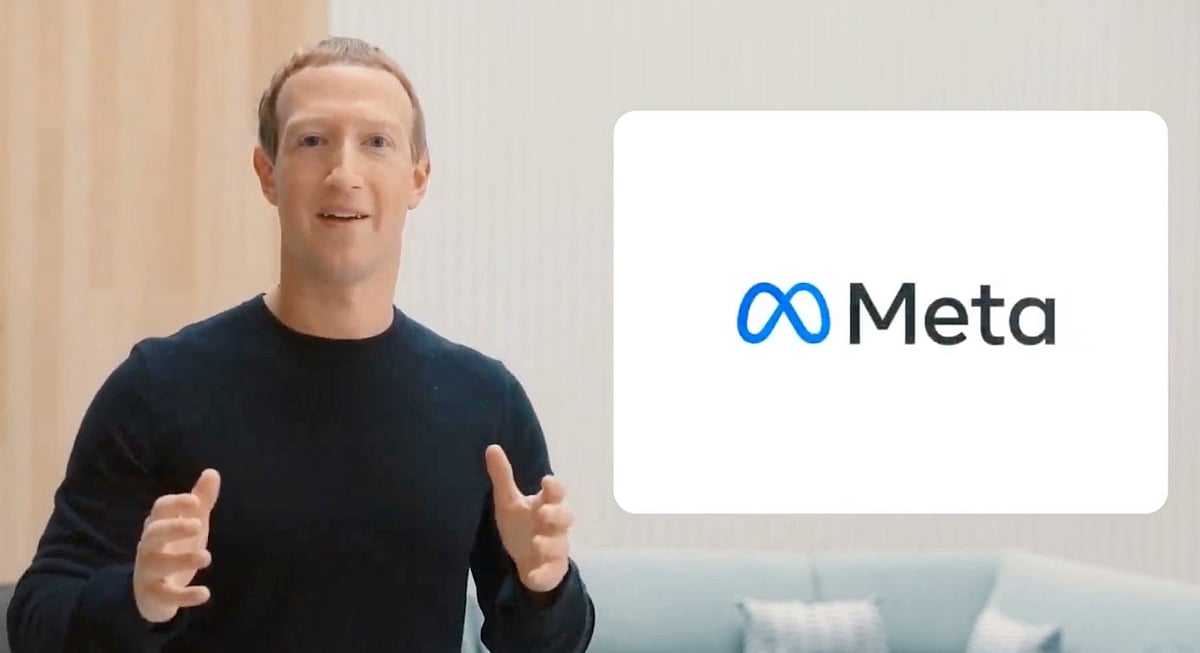Facebook isn’t Facebook anymore. Or is it? The world’s largest and most valuable social media company, which owns not only Facebook, but Instagram, Messenger and WhatsApp, reaching nearly a third of humanity across the globe, has just announced that it is changing its name to Meta, in line with a planned pivot towards Augmented Reality/Virtual Reality driven ecosystem.
Unveiling the planned ‘metaverse’ that it is planning to build, Facebook founder and CEO Mark Zuckerberg outlined his company’s vision of the digital world’s future – where a sort of artificially constructed reality seamlessly integrates the physical, digital and augmented worlds. The rebranding exercise comes at a time of deep crisis for Facebook, when once again its internal practices and systems, which allegedly help spread hate and disinformation, are under intense scrutiny and question.
Public criticism has peaked after the so-called ‘Facebook Papers’ hit the public domain. Frances Haugen, a former Facebook employee-turned whistle-blower, leaked internal documents which showed that Facebook was aware of the harmful impact Instagram was having on the self-esteem of children and young teens. Other documents revealed toxic work practices and a cavalier disregard for the devastating impact that the fake news, hate speech and disinformation being spread through the conglomerate’s social media networks was having on societies outside the United States, its home and headquarters.
Although less than 10 per cent of Facebook’s three billion users are in the United States, the leaked documents showed that 80 per cent of the resources that the social media platform devoted to content moderation and fact checking were focused on the United States. Other documents showed how Facebook researchers had found that their algorithms which decide what a user gets to see in their ‘news feed’ tended to amplify and emphasise conflict, violence and hate – but kept quiet about it.
Another damaging revelation was about Facebook’s ‘XCheck system’, which gave high-profile and celebrity users a virtual free pass to spread any kind of misinformation. In India, there have been multiple instances where Facebook has cracked down on those critical of the ruling dispensation, while letting off many other pro-government accounts for even flagrant violations of its own declared policies.
While the leaks may cause increased scrutiny of its actions in the West – there has been a Senate hearing in the US, while British parliamentarians have been urged to start a probe by Haugen herself – Facebook appears little concerned with the trust deficit building up elsewhere. As the papers revealed, it views the world merely as a market, one which it intends to capture in its entirety. In India, in particular, the absence of a data privacy law and lack of regulation of social media has led to the social media networks wielding an unhealthy level of influence over public discourse and opinion.
The rebranding exercise, therefore, appears to be little more than a PR stunt designed to deflect attention from the issues troubling Facebook. After all, the ‘metaverse’ exists at the moment only in Zuckerberg’s presentations – it is quite some time from becoming a reality. Meanwhile, the giant monetary engine that is Facebook will continue with business as usual, with Facebook and the other platforms it controls generating more than $86 billion in revenues. In fact, at the height of the Facebook leaks controversy, the company’s shares actually rose.
As long as the money keeps coming in, there are little grounds to suppose that Facebook will fundamentally alter its nature, rebranding and refocusing notwithstanding. Increased regulatory pressure in the West may lead to some tighter policing there, but as the company’s internal documents revealed starkly, that is unlikely to happen in the developing world where a majority of its users reside.
Unless the power of social media networks is regulated through appropriate legislation and oversight, it is clear that they will continue to do what they do best – build seductive offerings for the consumer at the front end, while building a ruthless digital economy which monetises the personal data of their users at the back end. More worryingly, it is clear that the big tech companies are already well ahead of lawmakers’ understanding of their business.
As Facebook’s pivot to the ‘metaverse’ shows, it is already building its version of the future even as regulators are struggling to come to grips with its present. Till that happens, it is clear that the cosmetic changes being planned will merely change the appearance of Facebook but not actually address its deeply troubling underlying problems. In that sense, Facebook and other big tech companies have already discovered that their all-pervasive reach means that the world can indeed be made to appear as what they say it is.









